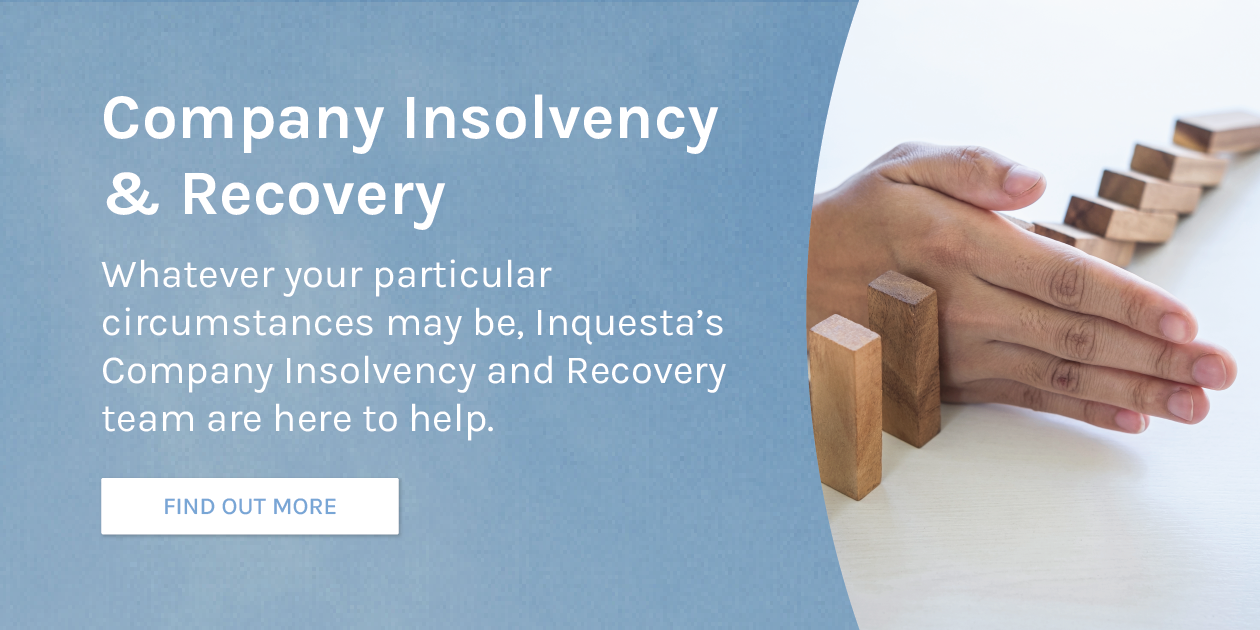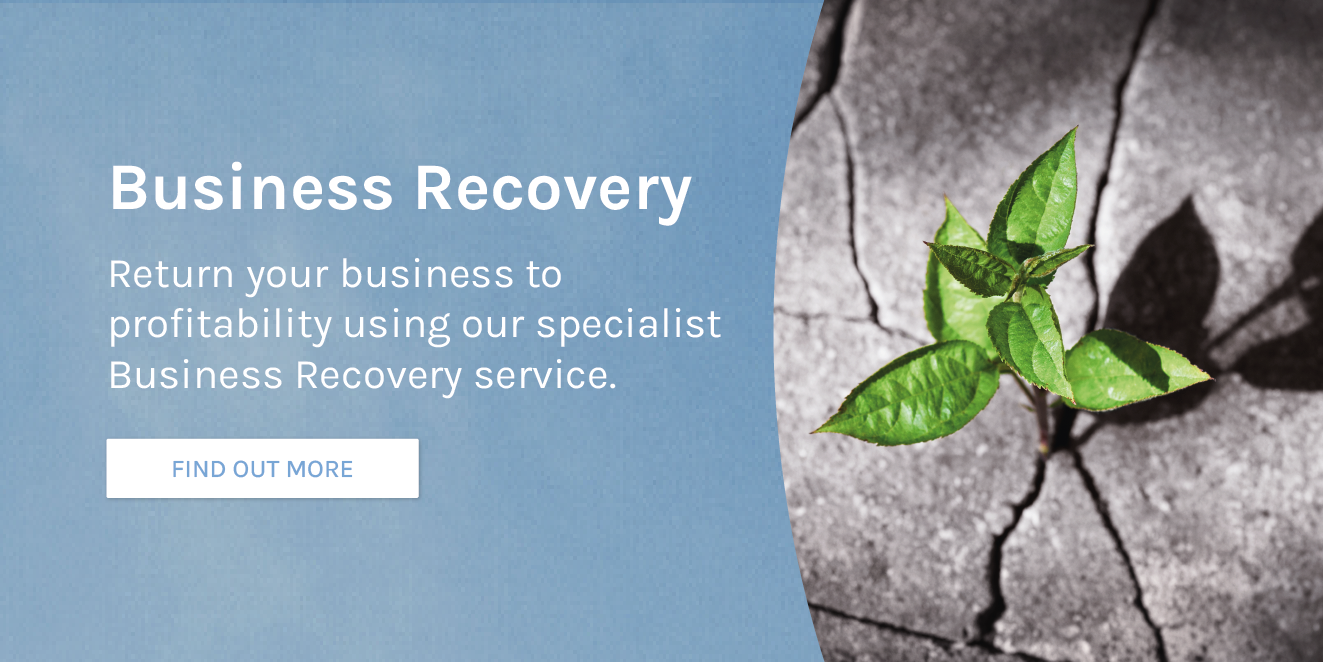As director of a limited company, one thing you likely are sure of is your relative safety when it comes to bankruptcy should your business ever fail. However, there are some situations where personal insolvency becomes a tangible threat, even as a company director.
The most common situation where this threat becomes real is when your business enters insolvency. If your company becomes insolvent, the protection you, as director of said company, received against personal liability will become invalid. This is commonly referred to as ‘lifting the veil of incorporation’.
When it comes to bankruptcy, there is a huge amount of misinformation out there, perpetuated by a variety of sources in the UK and around the world.
Without proper research and information, it can be very easy to make some potentially crucial financial mistakes, both for yourself and for the future of your business. In our blog, we will attempt to inform you on bankruptcy, what it means in the UK, whether or not a creditor can make you bankrupt, as well as discuss how Inquesta can support you through the bankruptcy process.
What Does Bankrupt Mean to UK Citizens?
Being bankrupt is when an individual is unable to repay their existing debts and makes, either of their own volition or forced via the Courts, a declaration of insolvency. With a filing of bankruptcy, an individual’s debtors will file a petition to the court in order to attempt to force repayment.
Bankruptcy can afford a person an opportunity for a fresh start, essentially allowing them to shed themselves of their debts and start again. However, to do so one must exchange the forgiveness of some of their debts with new payment plans, the liquidation of assets, and more.
In the US, both individuals AND businesses can be declared bankrupt. However, in the UK, declaring bankruptcy is reserved exclusively for people. Additionally, unlike the US, where there are a huge variety of different types of filing, in the UK there is only one form of bankruptcy, and you don’t need to have a minimum level of debt in order to declare.
Aspects of being bankrupt in the UK include:
- Your bankruptcy will be made public knowledge.
- The process will last for up to 12 months.
- After this time, all remaining major debts are expected to be written off (this excludes student loans, owed child support. etc.)
- Another common method of repaying creditors when bankrupt is to pay directly out of your monthly wage during the bankruptcy period.
- High-value assets such as family heirlooms, electricals, vehicles, properties, and even businesses may be utilised.
- You are unable to secure any credit during your bankruptcy.
- A note of your filing will remain on your credit score for six years after debts are wiped.
Can Creditors Make You Bankrupt As a Director?
In the UK, company directors are generally protected against personal liability for company debts. However, a creditor can seek bankruptcy if the director in question consented to a personal guarantee, or they acted either unlawfully or negligently. These infractions will only result in creditor action and personal liability if they result in the business facing serious financial difficulties or insolvency.
Bankruptcy in the United Kingdom is primarily a choice made by the person experiencing significant financial difficulties. However, if you were seen to have taken action, or consciously chose not to take action to the detriment of a creditor, said creditor may be able to file for bankruptcy on your behalf. They can also file on your behalf if you owe over £5000.
To file for bankruptcy on your behalf, a creditor doesn’t even need to contact you or seek permission before beginning the process. Reasons a creditor may opt to pursue making a director bankrupt include:
- Broken promises on the part of a director with regards to payment of money owed.
- To prevent a director from seeking to get more credit.
- The director is suspected of attempting to conceal assets or finance that could/should be used to repay the debt.
- It is seen that the director has been overpaying themselves from the company accounts via an overdrawn director’s loan account.
- In the event of suspected preferential payments made by the director.
- If the director has signed a personal guarantee at any point.
- Selling company assets for less than their market value
- They are alleged to have paid themselves a high wage when the company couldn’t afford it.
How can a Creditor Make You Bankrupt?
Before a creditor can make you bankrupt, they must first be able to prove to the courts that they have made a clear and concerted effort to resolve the issue in alternative ways. This means that they must first try to negotiate or force their creditor to repay before bankruptcy becomes a viable option.
The process of how can creditors make you bankrupt is:
Step One: Show a Clear Attempt to Recoup Debts
No court would ever allow a creditor to file bankruptcy on behalf of another party without them first being able to show clearly that attempts have been made and rebuffed, and an ample opportunity has been offered, to repay all debts.
The most common methods that a creditor can use to show that they have made an effort are:
- Sending a Statutory Demand: This demand is a legal notice that you owe money. Failure to either repay this demand, or come to an agreement on a future plan, within 21 days of it being issued can be seen as valid grounds for bankruptcy.
- Court Judgement: If bailiffs have been instructed to make attempts to force repayments and subsequently failed, the creditor may seek to apply for bankruptcy.
Step Two: Petition for Bankruptcy
Failure to adhere to any attempts to force repayment will likely lead to an application for bankruptcy. To do this the creditor will need to present a ‘bankruptcy petition’ to the court. To do so, the creditor will need to pay a fee. Once this has been paid, the debtor will receive notice of the petition and be given a chance to oppose the issuance of a bankruptcy order.
Step Three: Attend a Bankruptcy Hearing
Generally, a bankruptcy hearing will take place before a district judge at a High or County Court. The process of this hearing entails all parties receiving notice of the date of the hearing ahead of time. It is highly recommended that, no matter which side of the case you are on, you contact a professional solicitor to support your case.
At the conclusion of the hearing, the judge will likely either dismiss the petition due to the lack of a credible case, suspend proceedings to allow for more evidence to be gathered, or make the bankruptcy order.
Step Four: Bankruptcy Order Made
If the court deems that it is appropriate after all evidence is considered, the bankruptcy order will be made. Once the order has been made, you will be declared officially bankrupt, with immediate effect. The official receiver who will be overseeing the process will also be informed immediately.
What To Do Next If Handed a Bankruptcy Order
If you’ve found yourself wondering ‘can a creditor make me bankrupt’, then it’s important to remember, you are not alone. Dealing with financial difficulty in your business for months or years can be a hugely stressful time for anybody. Adding the threat of personal liability into the mix creates a situation nobody should attempt to deal with on their own. If the veil has been lifted and you believe you are now vulnerable to threat, it’s vital that you take immediate action to maximise your personal protection.
Contacting a licensed insolvency professional at the earliest possible juncture — be it prior to the order being issued when the debts are racking up, once creditors have made contact, ahead of the bankruptcy hearing, or once the order has been made — is crucial. Even if you have already been made bankrupt, it is not too late to ask for help.
If you want to avoid being personally liable yourself, it’s important that you better understand the art of cash flow management. Poor management of the money coming in and out of your business will only result in, at best, complications down the line, and at worst it can lead to personal liability or even legal issues.
Inquesta’s expert team has been there, done that, and seen it all. If you are attempting to negotiate the minefield of financial difficulties, it is vital that you have somebody in your corner who actually knows how to help. Burying your head in the sand can only make the situation worse. Likewise, foolhardy attempts to turn your fortunes around can also cause a situation to worsen.
Contact us today to find out more about what we can do to help you avoid bankruptcy — or support you if it is inevitable. Alternatively, for an immediate insolvency contact, get in touch via our live chat.




